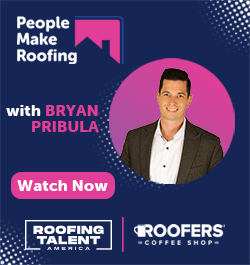OSHA Interim Response Plan

By Elliot Haney & Trent Cotney of Cotney Construction Law LLP.
The Response Plan is designed to ensure that OSHA’s limited resources are reserved for industries at the highest risk of COVID-19 exposure.
Employers in the construction industry are well aware of the Occupational Safety and Health Administration (“OSHA”) and its standard practices and procedures for investigating workplace safety complaints. However, since the outbreak of COVID-19, many contractors have had to modify and update their workplace safety policies with little to no official guidance. Luckily, on April 13, OSHA released an Interim Enforcement Response Plan for COVID-19 (“Response Plan”), which introduces OSHA’s updated procedure for investigating COVID-19 related complaints, outlines additional measures employers should be taking in the wake of the pandemic, and provides practical guidance for limiting your company’s legal exposure from COVID-19. While the Response Plan focuses primarily on the healthcare and emergency services industries, there are several areas of the Response Plan that construction industry employers should be aware of.
Due to an increase in workplace safety-related complaints arising from COVID-19 and the logistical problems associated with conducting site inspections amidst social distancing guidelines, the Response Plan is designed to ensure that OSHA’s limited resources are reserved for industries at the highest risk of COVID-19 exposure. For complaints lodged against construction contractors – most of which are considered medium to low-risk employers – OSHA compliance officers must follow a non-formal investigation process focused on expediting employer attention to alleged hazards and shifting OSHA’s resources to the industries hit hardest by the COVID-19 outbreak. As part of this non-formal procedure, OSHA is required to notify an employer of a complaint lodged against it by phone prior to starting an investigation. OSHA will then send the employer a letter (an example of which is included in the Response Plan), calling on the employer to immediately investigate any hazardous conditions on the jobsite and make necessary corrections or modifications to its workplace safety procedures. Documents evincing such an investigation and the actions taken as a result must be submitted in response to OSHA’s letter. OSHA suggests following the Center for Disease Control’s (CDC) guidance for businesses and employers, as well as OSHA’s own COVID-19 prevention guidance when taking actions to modify an employer’s workplace safety policy.
Additionally, noting the country’s shortage of adequate Personal Protective Equipment (PPE), OSHA encourages its compliance officers to exercise discretion in enforcing PPE standards against medium to low-risk employers. The Response Plan instructs investigators of PPE-related complaints to first assess whether an employer is making good faith efforts to implement engineering controls, administrative controls, and safe work practices to prevent exposure to respiratory hazards. If a good faith effort is made, the Response Plan encourages investigators to relieve medium to low-risk employers of their duty to strictly comply with PPE standards. By lowering PPE standards for medium and low-risk employers, not only does the Response Plan foster swift resolution of relatively minor violations, but it also helps reserve scarce PPE for those businesses operating in high-risk exposure areas.
While these new procedures are intended to limit the number of formal investigations conducted against medium to low-risk employers, construction businesses should not take issuance of a non-formal complaint lightly, and are strongly encouraged to seek advice from an attorney prior to drafting a response. If OSHA deems the employer’s response “inadequate”, OSHA may institute formal investigation proceedings and conduct an on-site inspection of the jobsite. The Response Plan provides that, following a formal investigation, the decision as to whether to issue a citation should be guided by the most current CDC guidelines on workplace safety. If it is determined that the protective measures implemented by the employer do not rise to the standards in the CDC guidelines, OSHA will consider whether employees are exposed to a recognized hazard and whether there are feasible means to abate that hazard that the employer has not enforced. If so, the employer will be found to be in violation of Section 5(a)(1) of the Occupational Safety and Health Act – also known as the general duty clause – which requires employers to provide a workplace free from recognized hazards. The penalties associated with such violations can be very costly.
The outbreak of COVID-19 has produced new and unforeseen challenges in the world of workplace safety. In the construction industry in particular, with so many workers considered essential, it is imperative that employers are implementing OSHA-compliant workplace safety procedures to prevent employee exposure to the virus. While OSHA’s Interim Enforcement Response Plan is advantageous to construction contractors, a non-formal complaint must be taken very seriously. It is strongly encouraged that you contact your attorney to ensure that your workplace safety policy is sufficient to guard you from potential liability before it is too late.
Cotney Construction Law is an advocate for the roofing industry, General Counsel of NRCA and several other industry associations. For more information, contact the author at 813.358.1746 or go to www.cotneycl.com.
Learn more about Cotney Construction Law, visit their RCS Directory.
Disclaimer: The information contained in this article is for general educational information only. This information does not constitute legal advice, is not intended to constitute legal advice, nor should it be relied upon as legal advice for your specific factual pattern or situation.

-2025-xtv-mls-tour-2.png)





















Comments
Leave a Reply
Have an account? Login to leave a comment!
Sign In